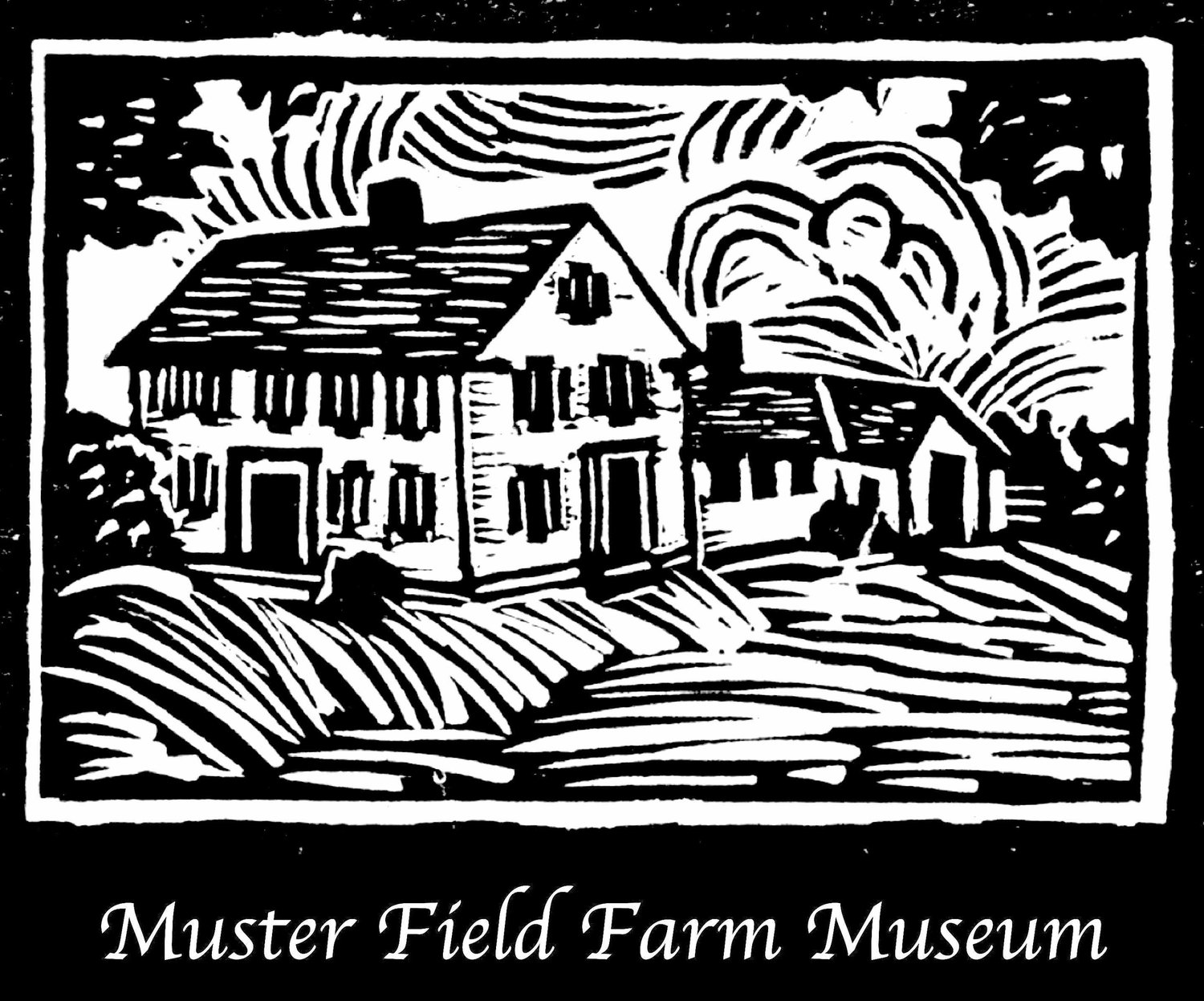
Today’s Working Farm
Bob Bristol’s Vision
Bob Bristol reclaimed the surrounding fields and operated a dairy and chicken farm until the mid-1960s, while serving as Sutton selectman for 41 years. Bob Bristol was the man who had the vision and the generosity to preserve the property as a working farm museum. Robert S. Bristol, the founder of Muster Field Farm Museum, stipulated in his will that a working farm always be in operation and that the museum work to support and preserve the agricultural traditions of rural New Hampshire.
Today's farm produces vegetables, fruit, flowers, hay, and cordwood. Ice blocks are cut from Kezar Lake in the winter and stored until summer in the farm's ice house. Over 200 of the museum's 250 acres are under a conservation easement with the Society for the Protection of NH Forests. A program of selective cutting and sustainable forest management maintains diverse stands of mixed hardwoods and softwoods.
The large, flat and open fields, where militias mustered during the 18th and 19th centuries, are used to demonstrate farm operations and equipment during Farm Days in August. They also produce a large amount of hay that is used on the farm to winter-over the cows.
The Farm
Jodi Hedderig and Dave Janas, the co-farm managers and seasonal helpers are always hard at work. The farm specializes in vegetable production, producing a wide range of vegetables. Flower beds exhibit an ever-changing display of texture and color.
The farm's produce stand is open daily until 6 pm during the summer, generously supplied with all types of vegetables and herbs. It sells to both local visitors as well as supplying neighboring restaurants and food markets, and is open on event days for our visitors. The farm also maintains a small population of cows.
Agriculture is alive and well at Muster Field Farm Museum in North Sutton, as it has been for parts of the last four centuries. We hope you come and see for yourself what a "working farm" really means.

